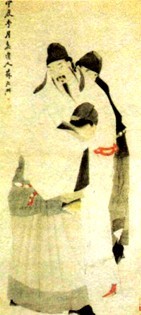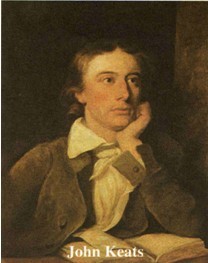人教高中英语高二上UNIT4-2
搜索关注在线英语听力室公众号:tingroom,领取免费英语资料大礼包。
(单词翻译)


Reading poetry brings people from different places and different times together. More than any other form of literature, poetry plays with sounds, words and grammar. That makes poetry difficult to write, but very interesting to read. Poetry also calls up all the colours, feelings, experiences and curious images of a dream world.
China has a long history during which many of the world's greatest poets were active. Poems by Du Fu, Li Bai and Wang Wei among others stand out in the halls of glory1. When you have read some Chinese poems, you will have seen and heard some of the features that all good poetry shares. The form is very important: the number of lines and the number of characters in each line. Poetry often follows special patterns of rhythm2 and rhyme3.
Despite its short history, there is a lot of good English poetry around. The earliest English poetry was written in a kind of English that is now difficult to understand. Modern English started around the time of William Shakespeare4, towards the end of the sixteenth century. The seventeenth century was a great time for English poetry. Shakespeare is most famous for his plays. His sonnets5, however, belong to the best English poetry. In the next generation of great English poets we meet John Donne. Chinese readers admire his works6 because of his use of surprising images that reminds them of the works of poets such as Su Dongpo. Before the end of the century, there was another famous writer, John Milton. Once published, his work became famous for the absence of rhyme at the end of each line. In the eighteenth century it was Alexander Pope7 who wrote the finest poetry in England.
The next period that produced a great number of fine poets was the nineteenth century. Greatly
loved in China are the English Romantic8 poets. Although they were all born in the eighteenth century, they wrote their major works in the early years of the nineteenth century. John Keats died at a very young age in 1821; while William Wordsworth, who spent much of his time in the English Lake District, lived to the age of 80 and died in 1850. The nature poems by William Wordsworth, George Gordon Byron's Isles9 of Greece and the sonnets and long poems by John Keats have long been favourites. The style and atmosphere in their poems have often led to comparisons10 with poets such as Du Fu and Li Bai.
Finally, modern poets have their special attraction11 because they stand closest to us both in the language and images they use. Among them we find the American poet Robert Frost12.
The introduction13 of English poetry to China came late. Towards the end of the nineteenth century Chinese writers started reading more foreign poetry. The great moment for European literature to come to China is between 1910 and the late 1930s when famous writers such as Lu Xun and Guo Moruo translated both poetry and novels into Chinese.
More and more people are interested to read modern poetry in English. Translations can be good, but being able to read in English gives you much more choice. Besides, no matter how well a poem is translated, something of the spirit of the original work is lost. Reading poetry in English also opens the door to finding14 new ways of expressing yourself in Chinese. Finally, poems and literature can be bridges between the East and the West. They can help us to understand each other better, or as Mu
Dan wrote:




